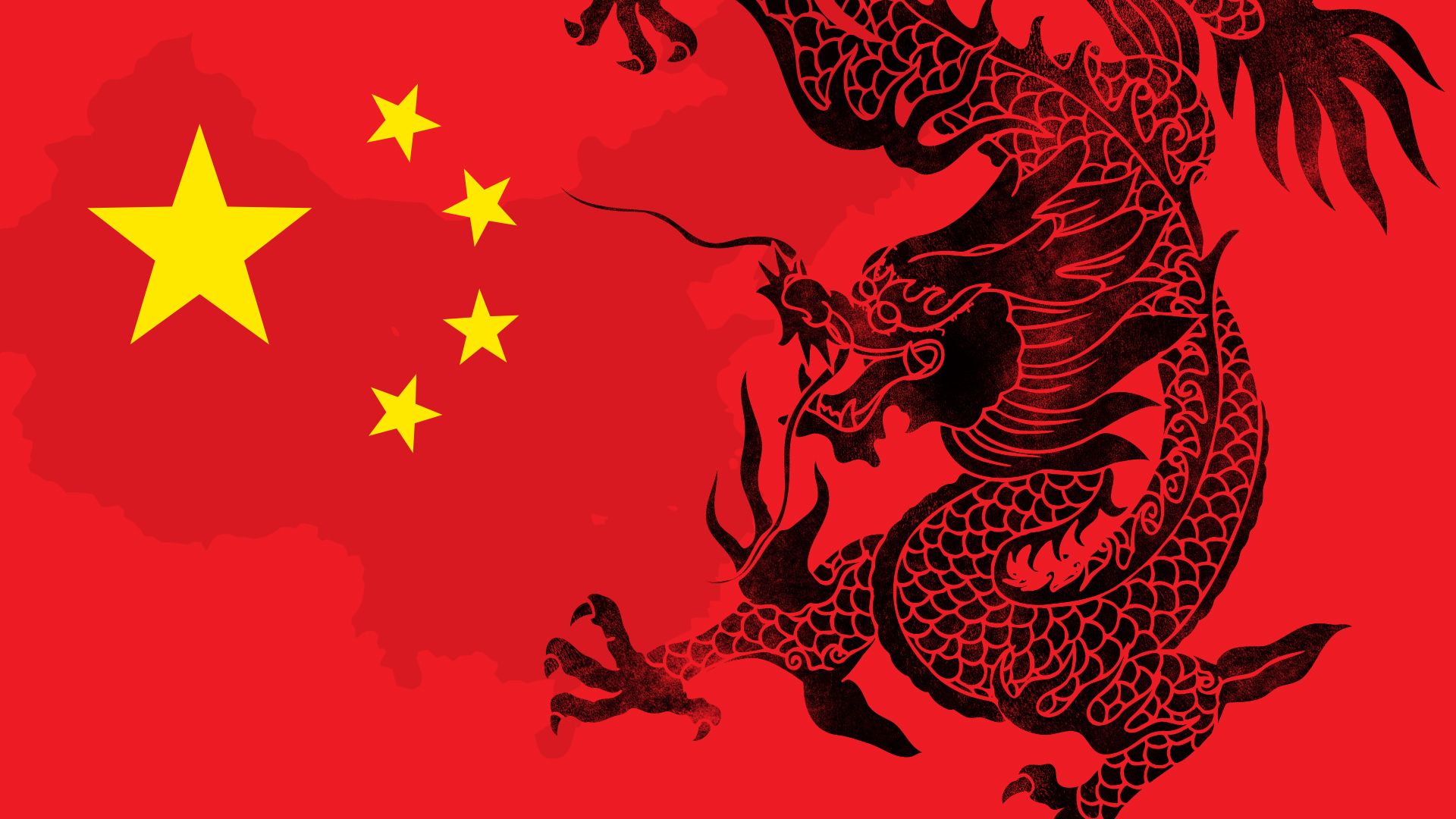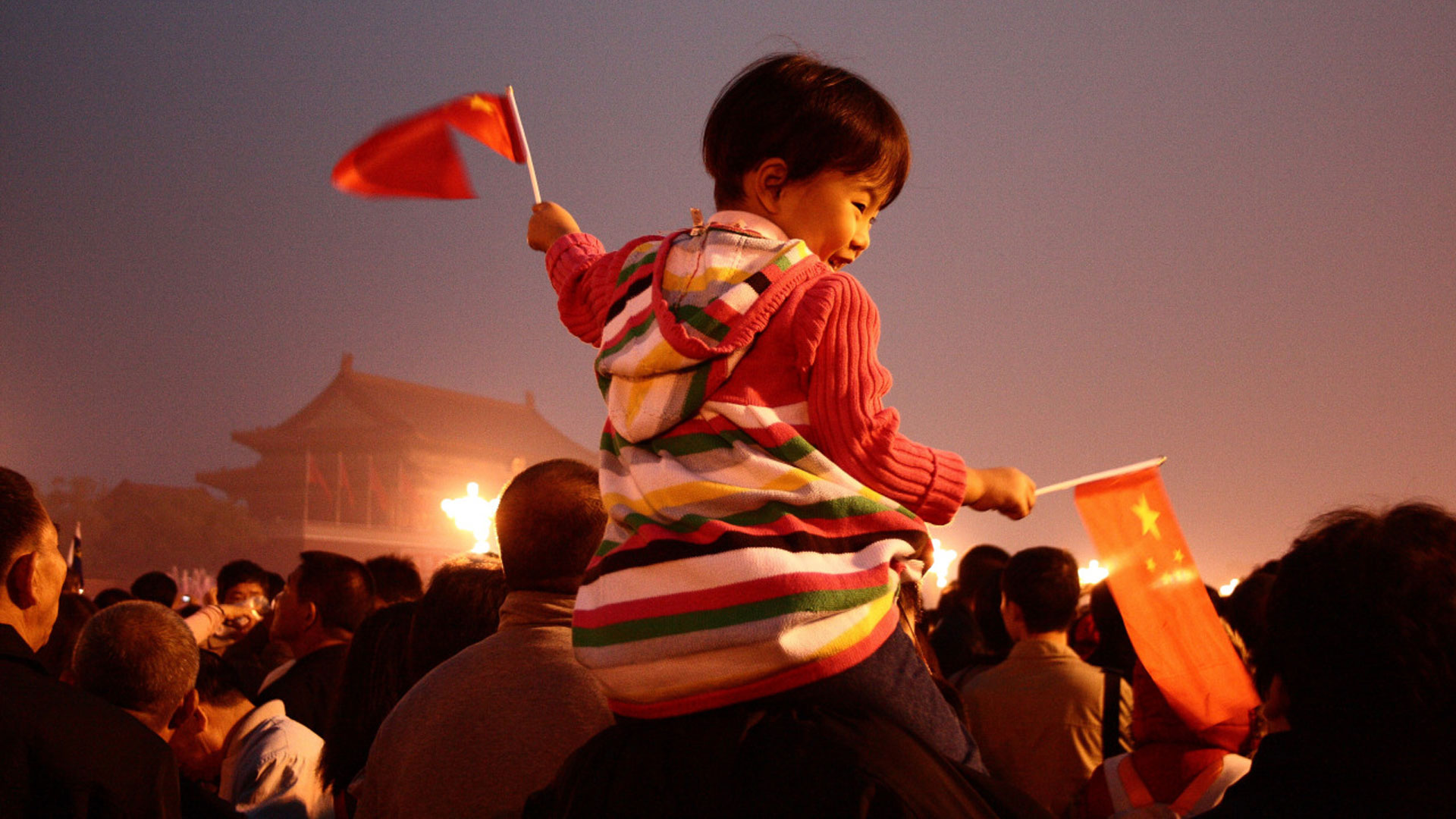China: Peaceful Lion or Waking Dragon?
Views of China depend largely on our differing vantage points. How should we see an ascendant China in a globalized world?
Napoleon Bonaparte allegedly once likened China to a sleeping lion, saying that “when China wakes up, the world will shake.” While the quote may well be apocryphal, Chinese president Xi Jinping alluded to it in 2014, commenting that “today, the lion has woken up. But it is peaceful, pleasant and civilized.”
Few could fail to see that China is very much awake, though many around the world wonder just how peaceful and amiable it is, and for how long it will remain so.
How do we view China’s rise and what it might mean for the Chinese people, for her neighbors and for the world?
Which China?
On one level, how we perceive China’s awakening may depend on where we’re coming from, geographically and/or ideologically.
For example, from the perspective of those living in a neoliberal Western democracy, China’s awakening may bring a sense of alarm. They might worry that the post–World War II norms are changing—that the economic system that dominates the world flourishes best in democratic societies, and that changes are designed to benefit the architects of change most of all. Or they might fear that the prevailing values of a democratic society would be snuffed out if an authoritarian nation were to dominate the global social order.
Those who live in an emerging market such as Africa, on the other hand, may have benefited from significant Chinese investment. This may lead them to something of a dual position: appreciating the help with infrastructure as well as a newfound market for their raw materials, but perhaps also fearful over what critics characterize as “debt-trap diplomacy”—that China will readily lend money, but when nations cannot repay the loans, they will come under China’s control.
Alternatively, people in Hong Kong or Tibet are more likely to view China as an active oppressor. In Taiwan, India, Australia and Japan, they may warily tiptoe around an awakened China, weighing their options for dealing with what they see as a constant potential or actual threat.
However, within the People’s Republic of China (PRC), among its closest allies, and among others who may share its communist ideology from afar, the perspective will likely and perhaps understandably be quite favorable.
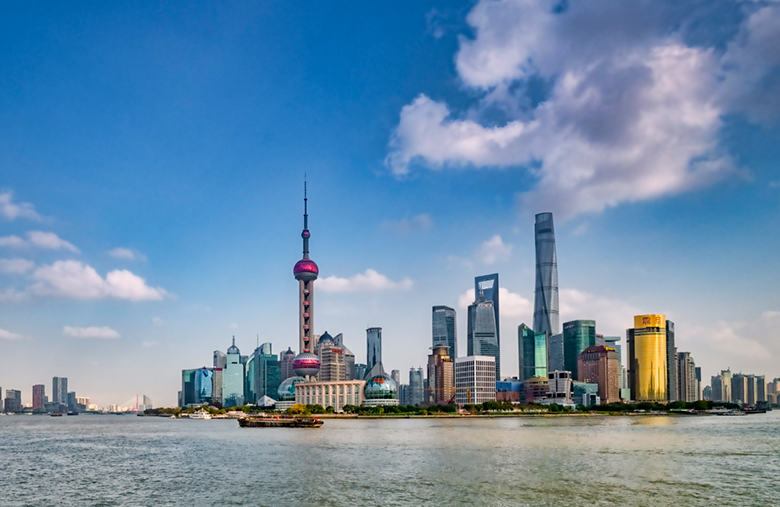
The skyline of Shanghai’s Pudong district stands as testament to China’s thriving economy.
Yet even within China, a favorable view isn’t universal. It assumes that those who live in China are perfectly aligned, ideologically, with the Chinese Communist Party (CCP). And while surveys do suggest a high level of contentment, surveys undertaken in authoritarian countries are often treated with some suspicion. For example, there’s clearly the very different perspective of the one and a half million Uighurs, a mostly Turkic Muslim minority living in western Xinjiang Province, who are reportedly experiencing active oppression by the Chinese authorities. Christians, too, report a government effort to “sinicize” their religion, bringing it under the control of the Communist Party. Any attempt to constrain the universal message of Christ is bound to create conflict.
“Even though the Party says, ‘We speak for everyone,’ you have more plurality of opinion than people think. . . . People have different beliefs; people have different hopes. And that is true for China, as for everywhere else.”
What each view of China’s awakening has in common is a perception of what is economically and ideologically most favorable to that observer and what he or she believes to be best for the world.
On all sides of the globe, foreign policy and self-interest often go hand in hand, of course. Greed, corruption, selective transparency and violations of human rights can and do occur anywhere. It is China’s record as an authoritarian nation that those upholding democratic values would say is the real danger. Some of the allegations leveled against it range from discrimination, forced migration and incarceration, to involuntary sterilization, torture, slavery and even genocide.
While getting to the bottom of such allegations is a thorny issue, what is clear is that the China we see will determine how we view the implications of its awakening.
Awaking From a Pandemic
Many in the West long believed that after Mao Zedong, Chinese communism would shrivel up just as the Soviet brand did in 1991. Yet it has weathered many disasters. In 2011 Sebastian Heilmann and Elizabeth J. Perry wrote in Mao’s Invisible Hand that “contrary to expectations, the PRC regime has proven surprisingly capable of surviving serious unanticipated crises, from the Asia financial crisis of 1997–99 through the SARS epidemic of 2003, to the global economic downturn of 2008–9. These challenges would have sounded the death knell to many a less hardy regime.”
Today, of course, we could add how the handling of SARS helped to prepare the PRC to weather the initial COVID-19 surge. As World Health Organization (WHO) officials began to investigate the origins of the global pandemic in Wuhan Province, China had already announced annual world-leading economic growth of 2.3 percent in 2020.
Some commentators remain cautious because of China’s debt burden, overcapacity, perhaps unsustainable GDP growth, and microeconomic challenges, though others tout its economic success as the fast-tracking of an inevitable move East. In attracting Foreign Direct Investment, China marginally outpaced the United States for the first time in 2020. Analysts have long anticipated a moment in the future when China’s GDP overtakes America’s, but the PRC’s initial weathering of COVID-19 may mean that this happens years earlier than expected, perhaps within the decade. In 2020 China also successfully negotiated a new trade agreement with the European Union, which offered the EU access to its 1.4 billion consumer base.
“China has become the world’s second largest economy thanks to 38 years of reform and opening-up. A right path leads to a bright future. China has come this far because the Chinese people have, under the leadership of the Communist Party of China, blazed a development path that suits China’s actual conditions.”
China, under Xi, managed to get the pandemic under control. The Trump administration has fallen into history. Democracy has been shaken to its core in the United States and around the globe in recent years. This may well have spurred a rise in the confidence of Chinese leadership to promote China as an alternative leader on the world stage. During a virtual Davos Agenda conference of the World Economic Forum in January 2021, Xi urged global leaders not to begin “a new Cold War,” not to “threaten or intimidate.” Instead, having already advocated for globalization at a Davos speech in 2017, he called for “an open world economy” that would “discard discriminatory and exclusionary standards, rules and systems, and take down barriers to trade, investment and technological exchanges,” as well as “engage in closer macroeconomic policy coordination.”
The Chinese president’s words have been taken as a reaction to the trade wars and the “America first” foreign policy of the Trump administration. China was promoting itself to lead the global recovery and cooperate multilaterally with institutions such as the WHO, the G20 and the EU in a way that repudiates the unilateralism pursued by the United States in recent years. The comments likely also denoted a response to the Huawei allegations and the movements of President Biden, the United States and its allies to reestablish global alliances aimed at countering China’s influence and upholding democratic ideals around the world.
In the background of this renewed push stand the facts concerning China’s actions and lack of transparency regarding COVID-19. The PRC delayed sharing the sequence of the new coronavirus with the rest of the world. It initially suppressed evidence concerning the human-to-human transmission of the virus, keeping it from both its own citizens and the world in favor of maintaining stability. Li Wenliang, the ophthalmologist who tried to raise the alarm, was silenced by the police and reportedly died of COVID-19. And though it did soon impose severe restrictions on movement, the regime allowed Chinese travel ahead of Lunar New Year, regardless of the clear danger to its own population and to the world.
The global turmoil caused by the pandemic has also been the moment in which China passed draconian laws to bring Tibet and Hong Kong under tighter control while stepping up aggressive posturing against Taiwan and India. In some quarters, observers also perceive the military coup in Myanmar—which many in the United States had regarded as an eastern frontier of democracy—to have been emboldened by backing from Beijing.
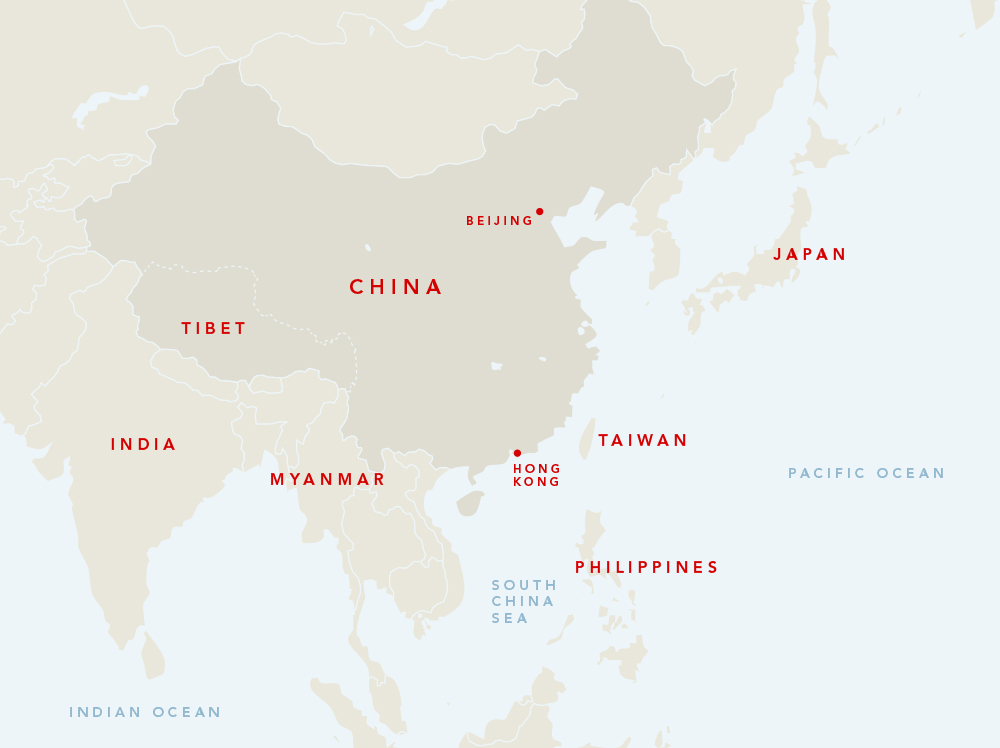
China’s Waking Dream
While the Nixon administration’s carefully choreographed invitation for China to come in from the cold in 1972 was a clear turning point, the nation’s awakening has had much to do with the increasingly progressive and outward-looking policies taken up in the late 1970s by Deng Xiaoping. The West’s hope has always been that with greater inclusion, China would soften its authoritarian approach and open itself to the rest of the world.
Fast-forward to Xi’s leadership today, and China is realizing “the Chinese Dream”: its rejuvenation as a great kingdom. While previous leaders shared that dream, Xi has charged that they failed to deliver. He suggested in 2012 that the baton he and the party leadership had received from history was to achieve “the great renewal of the Chinese nation.” But in contrast with his predecessors, Elizabeth Economy writes, Xi’s approach has been “reform without opening up.”
Author and journalist Howard French points out that Chinese influence on the world stage is the historical norm: “From at least the Tang dynasty (618–907) nearly to the chaotic end of dynastic rule in China in 1912, to one extent or another, the peoples of this sea-bound region often found ways to defer to China.” This constituted “an extremely loose and distant brand of indirect rule by China over a very considerable slice of humanity.”
China’s standing was dealt a severe blow, however, during what has become known as the Century of Humiliation—a period of myriad national disasters that began with the First Opium War, followed by the Unequal Treaties of the British, defeat by Britain and France in the Second Opium War (1856–60), and defeat by Japan in two Sino-Japanese Wars (1894–95 and 1937–45).
“The epithet of ‘historical nihilism’ . . . is used to label any account of the past that diminishes the prestige of the CCP, challenges its orthodox narratives, or undermines its policy positions.”
Economy, senior fellow for China studies at the Council on Foreign Relations, notes that Xi has elaborated on his vision: “For Xi, the Chinese Dream was premised on the attainment of a number of concrete objectives: China should double its per-capita GDP from 2010 to 2020; it should have a military ‘capable of fighting and winning wars’; and it should meet the social welfare needs of the people.” Contrasting with “the more individualistic American Dream,” she writes, Xi has presented the Chinese version as “a dream of the whole nation, as well as of every individual.”
Xi spoke those words in a speech at the National People’s Congress in March 2018. In coverage by The People’s Daily, the official CCP newspaper summarized the president’s sunny assurances to the world in terms of “the Chinese Dream [going] global.” According to the article, “China’s growth does not pose threat to any countries, as we will never seek hegemony or expansion, Xi emphasized. Instead, China wants to contribute the Chinese wisdom to the global governance and to show the world its determination to work for an equal, open and peaceful world.” As we noted earlier, some of her neighbors might beg to differ.
On the economic front, China has the second largest economy in the world. In 2014, Economy writes, Xi called for his nation to “be prepared not only to help write the rules of the game but also to construct the playground on which the game is played.” Several analysts viewed this as a break with the past, inferring a desire on Xi’s part to reconstruct the economic playground itself.
This aspect of the Chinese Dream is exemplified in the Belt and Road Initiative (BRI), a significant piece of foreign policy launched by Xi in 2013. It amounts to a reinvigorating of the ancient Silk Road running west from China across Eurasia as far as Italy and Portugal. Bruno Maçães, a Portuguese politician and political scientist, writes that “Eurasian trade in goods is now close to $2 trillion each year, consistently more than double the volume of Transatlantic trade and significantly more than Transpacific trade.” This appears to be Xi building his playground; Maçães observes that “whoever is able to build and control the infrastructure linking the two ends of Eurasia will rule the world.”
Some fear that the BRI could become, overnight, an inroad west for an advancing army. Whether or not such fears are realistic, academic Clive Hamilton and sinologist Mareike Ohlberg do argue that “the initiative is Beijing’s primary mechanism for reordering the global geopolitical system.”
“Xi Jinping has repeatedly referred to the BRI as essential to his vision of constructing ‘a community of common destiny for humankind.’ While the idea might sound good to Western ears, its aim is a Sinocentric world.”
On the military front, China has the largest armed forces in the world and has increased its defense budget by annual increments of between 6.6 and 12.5 percent over the past decade. Saber-rattling in the South China Sea—one of the world’s busiest and most lucrative sea lanes—has escalated under Xi, making it a likely flashpoint. In 2015, China began pumping sand onto disputed reefs in the Spratly Island group, literally creating new islands in an effort to further stake its claim. In 2016 an international tribunal in the Hague, looking to settle a complaint brought by the Philippines, ruled that China had no historical claim to the South China Sea. While many nations welcomed the verdict, China made it clear that it doesn’t recognize the court’s authority and won’t abide by the ruling. Meanwhile, it continues to build its military fleet, which is currently second in the world to that of the United States, though the gap is closing.
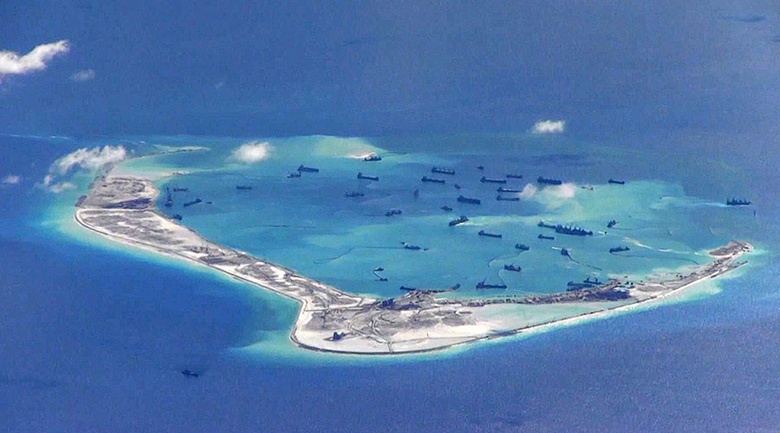
China proceeds with the construction of an artificial island in the South China Sea, on a reef claimed by the Philippines (May 2015).
United States Navy, Public domain, via Wikimedia Commons
Inevitable War?
Harvard professor Graham Allison, in his book Destined for War, questions whether a rising China can possibly avoid coming to blows with America. His model is the Thucydides Trap. Thucydides was an Athenian historian and general who suggested that “it was the rise of Athens and the fear that this instilled in Sparta that made war inevitable.” Allison overlays that idea onto the current situation, where an ascendant China is challenging America’s dominance of the world stage: “When one great power threatens to displace another, war is almost always the result.”
If a fully emerged and empowered China ever came to blows with a declining United States, the possibility of a war that would put the whole planet at risk cannot be ruled out.
Allison argues that the trap can be successfully avoided, however. As China presses its agenda today, it will no longer encounter Barack Obama or Donald Trump but Joe Biden. Yet both Xi and Biden have a strong sense of their respective nation’s greatness. Both believe firmly in their opposing ideologies. In his first major speech on foreign policy in February 2021, the American president spoke of meeting “this new moment of advancing authoritarianism, including the growing ambitions of China to rival the United States.” He also said that one of the reasons the United States should invest in diplomacy is that “it’s in our own naked self-interest.”
Whether or not Napoleon indeed said that the world would shake when the Chinese lion wakes up, China is awake and rattling the global status quo. The reason may well center on differing political ideologies—authoritarianism vs. democracy—and a struggle for supremacy, whether political, military, economic or social.
Beneath these primary concerns, however, other fundamental and deep-rooted differences are also in play. For example, China’s 5,000-year history gives it a perspective that the nearly 250-year-old United States can’t fathom. China’s history is cyclical. Today presidents and their administrations may come and go; but over thousands of years, China has seen the rise and fall of successive long-lasting dynasties. As a result, the nation is used to working through national ups and downs. The United States, on the other hand, has primarily experienced growth and increasing power over its short lifespan, so its people know only to think in those terms and to expect more of the same. Likewise, America’s insistence on individual rights is incompatible with China’s emphasis on national interests.
We noted earlier that the differing perspectives on China are informed by a level of self-interest. As long as the various parties fail to take their most fundamental differences into account—take each other into account—both trust and progress will be all but impossible. A failure to internalize how widely the respective philosophies, ideologies and cultures diverge will surely prevent meaningful dialogue between leaders.
Many cultures do share some version of the Golden Rule. In the predominantly Judeo-Christian West, it stems from the biblical principle of caring for everyone around you as much as for yourself. It might be defined as selflessness as opposed to selfishness. If every citizen of the world could absorb the concept of selflessness, and could practice it, what immediate benefits would be reaped, both for individuals and for nations—and as a direct result, for the world as a whole? The problem is that while the concept itself is quite simple, putting it into practice is not. In this world, self-interest most often overrides concern for those outside our circle.
Much more profitable than clashing over what we believe is best for us and our people (without concern for you and your people), would be to recognize that universal selflessness is the only path to global peace. Selflessness leading to peace has proven elusive for humanity as a whole. We, as individuals, won’t change that. What each one of us can do is to apply the lesson in our personal dealings with others. It begins with striving to understand one another better.

